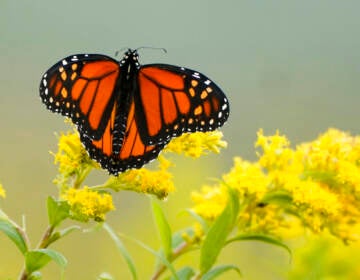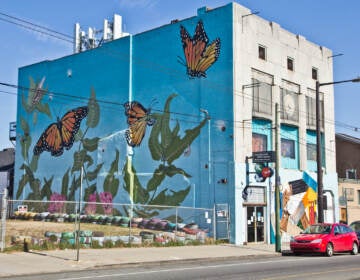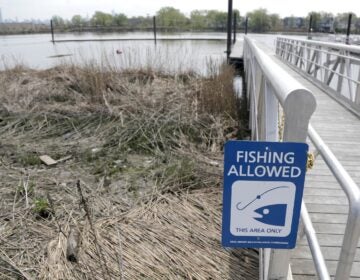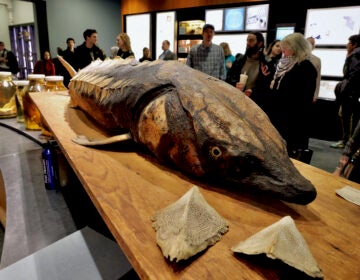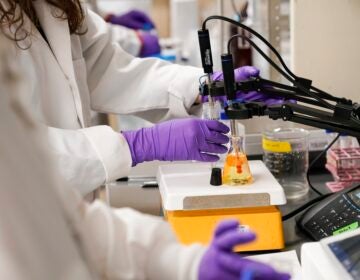Drexel University is phasing out herbicides, pesticides on campus grounds
Researchers say weed killers can harm the environment and pose potential human health risks.
Listen 1:08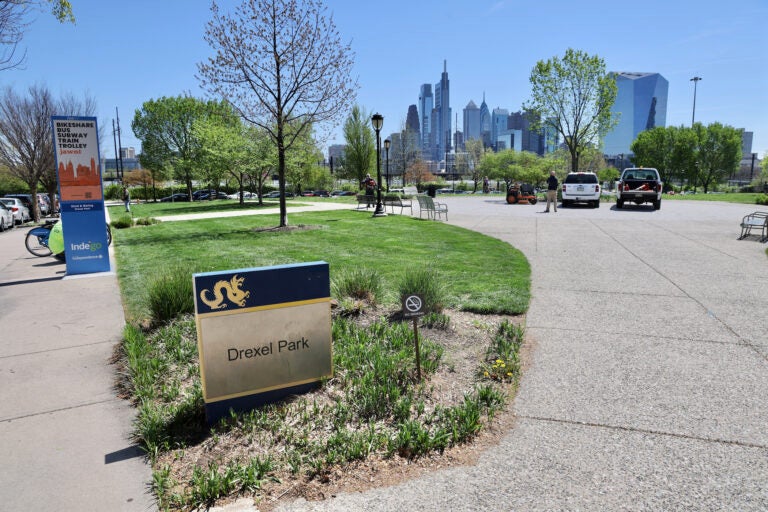
Drexel Park at 31st and Baring streets on Drexel University's main campus. (Emma Lee/WHYY)
From Philly and the Pa. suburbs to South Jersey and Delaware, what would you like WHYY News to cover? Let us know!
Weed killers prevent unwanted plants like crabgrass and dandelions from invading lawns.
However, the chemicals found in such products can impact the environment if stormwater runoff carries them to local waterways. Research has found exposure to herbicides and pesticides may cause serious illnesses, including some cancers, among humans and animals.
So, Drexel University’s groundskeepers will replace the synthetic chemicals campus-wide, with an organic turf program that includes organic fertilizer, overseeding and aeration. The decision comes after a group of students voiced concern about the use of weed killers.
The decision was made following the success of a grant-funded pilot program using safer alternatives at the university’s Drexel Park.
“With synthetic pesticides, fertilizers, and especially synthetic herbicides, there are risks that are just not entirely necessary, especially when there is such a great alternative available, which is organic turf care,” said Kacy Gao, a third-year student who helped advocate for the change. “I would hope that residents… just enjoy this space recreationally, knowing that it is not treated with synthetic herbicides.”
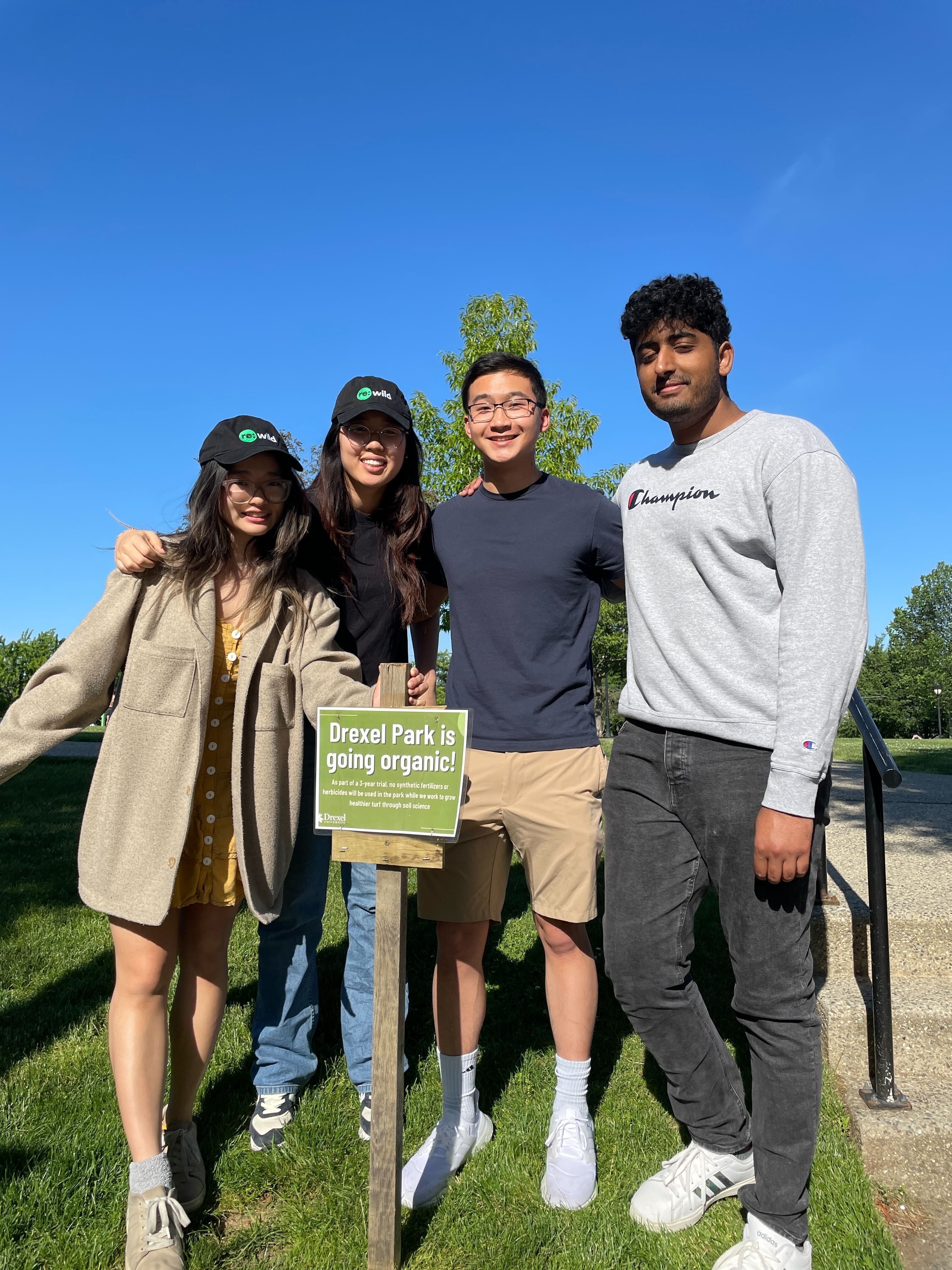
The students partnered with environmental groups Toxic Free Philly and Re:wild Your Campus, which have been calling for institutions and governments to reduce pesticide and herbicide use.
About 16 tons of toxic herbicides were sprayed in Philadelphia in 2022 alone, according to Toxic Free Philly. Researchers say every person in the U.S. has some level of pesticides in their blood or urine. Herbicides also are disproportionately sprayed in communities of color and low-income neighborhoods, according to The Black Institute.
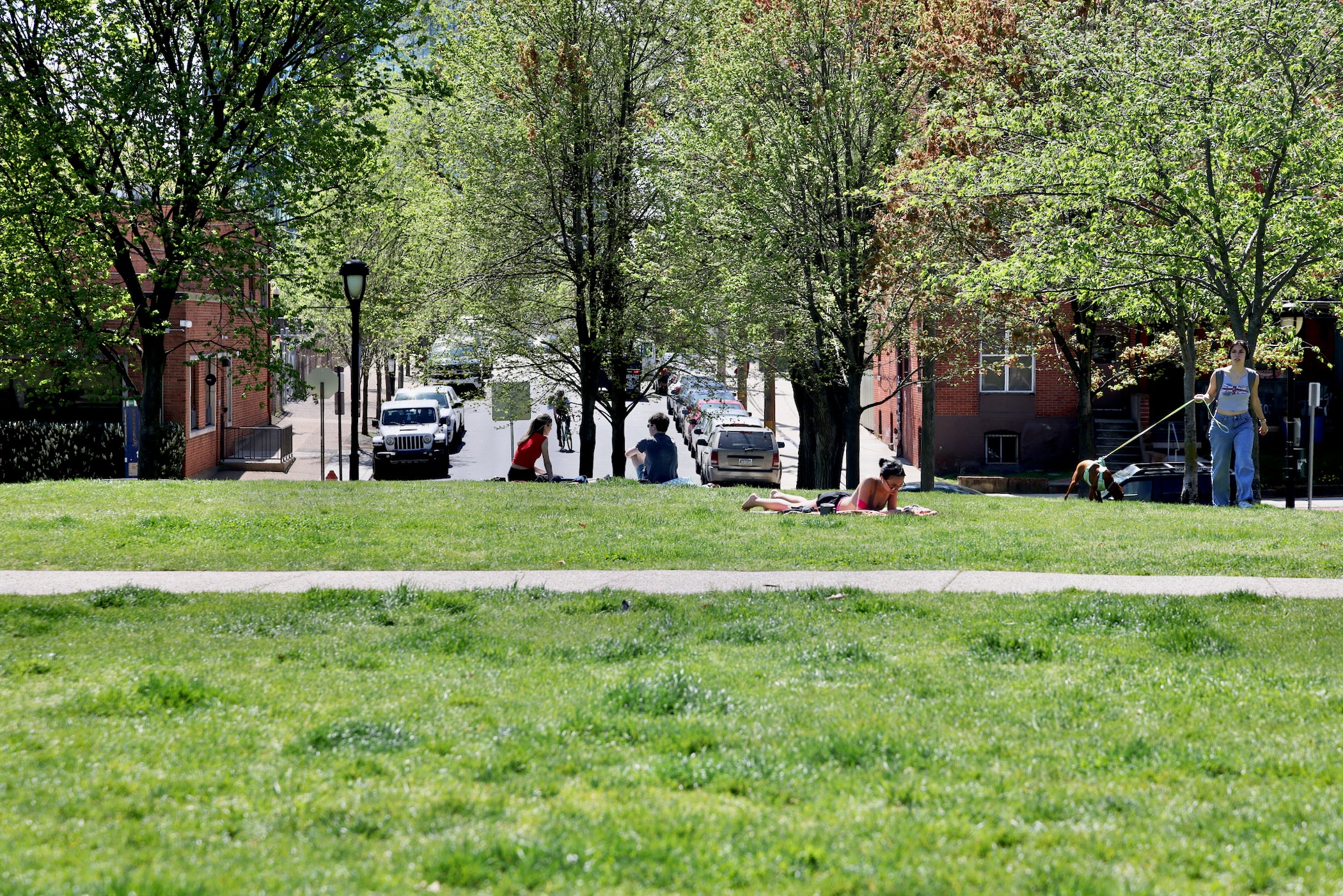
Though the data is limited, some studies suggest herbicides such as Roundup are associated with non-Hodgkin’s lymphoma and some other cancers, said Anneclaire De Roos, a professor at Drexel’s Dornsife School of Public Health. That has led to numerous lawsuits against the companies that manufacture the products, such as Monsanto.
De Roos added that in addition to potentially contaminating waterways, herbicides can impact wildlife and the environment by reducing biodiversity and ecosystem functions.
“[Using herbicide is] purely cosmetic on some place like a university campus. So the students, with their concern for the environment and health, and also for biodiversity and wildlife, that was the reason that they pushed for [an alternative],” she said. “The health concerns are there, and these are possible and probable carcinogens. But even beyond that, a push for this was ecological as well.”
Landscapers say organic fertilizer doesn’t directly eliminate weeds, but it helps improve turf health. The healthier the grass, the more likely it can keep weeds out.
Drexel’s groundskeepers say they’ve struggled to maintain grass coverage at Drexel Park, because it’s a popular spot for people to walk their dogs or play football with friends.
The reduced grass has allowed unwanted weeds to take over the park, said Tony Gale, Drexel’s assistant director for grounds. Since using organic fertilizer at the park, grass health has improved, he said.
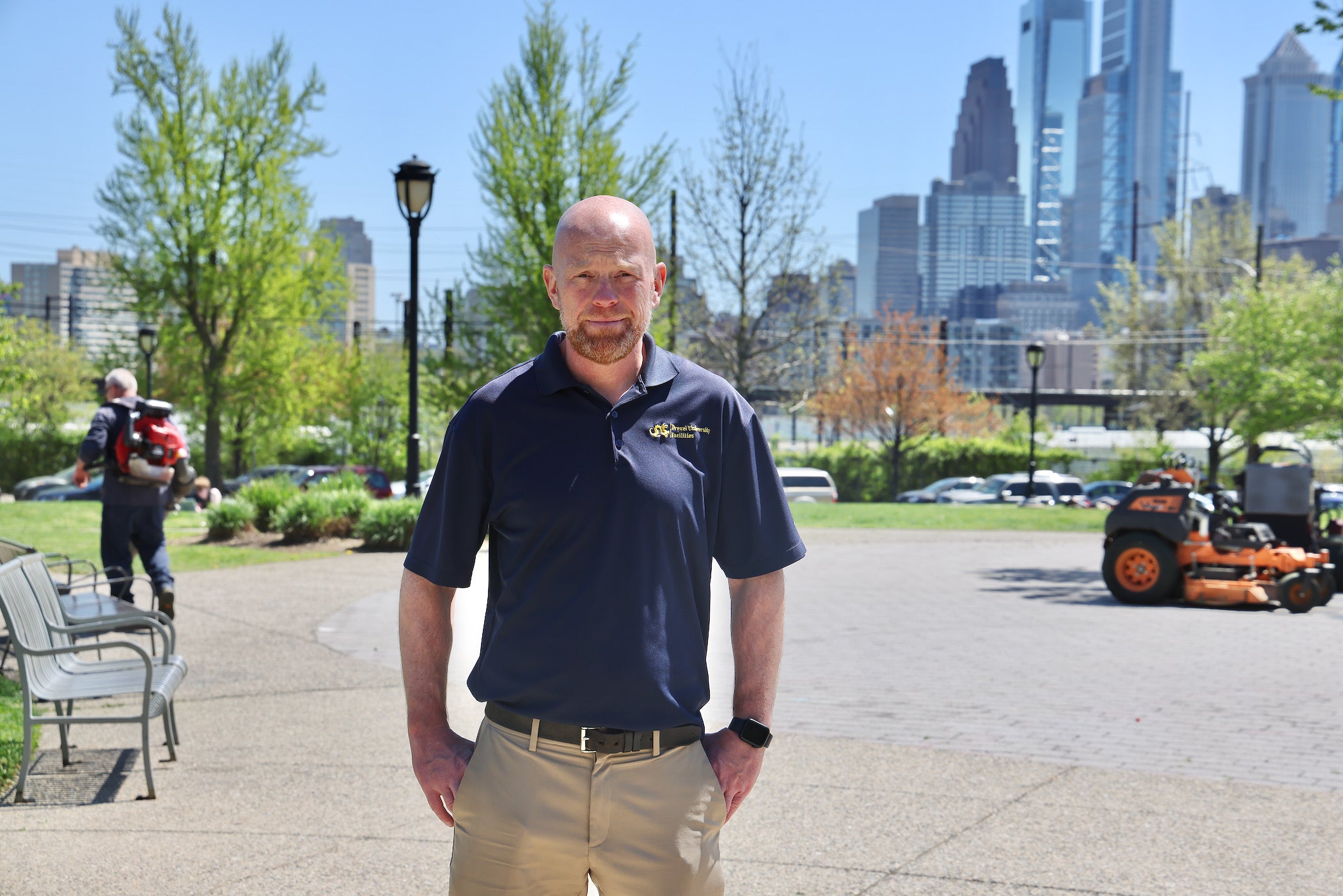
Gale said he feels more comfortable using the safer alternative in such a populated area.
“We used to [use herbicides] early on Saturday mornings, and it was very quiet around here. But still, you get the early jogger, an early dog walker. There’s always people out,” he said. “So, I’m just as happy to avoid that and not have anyone get sick or have anyone’s pet injured.”

Get daily updates from WHYY News!
WHYY is your source for fact-based, in-depth journalism and information. As a nonprofit organization, we rely on financial support from readers like you. Please give today.



